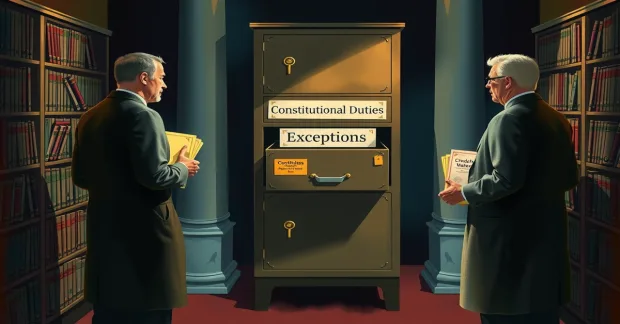
In the intricate realm of commercial law, the term “holder in due course” carries substantial weight. Rooted in the Uniform Commercial Code (UCC), this concept serves as a linchpin in determining the rights and privileges of parties involved in negotiable instruments. This comprehensive exploration seeks to demystify the holder in due course, shedding light on its legal implications, requirements, and the pivotal role it plays in shaping transactions and financial dealings.
Section 1: Unveiling the Basics
1.1 What is a Holder in Due Course?
A holder in due course, often abbreviated as HDC, refers to an individual or entity that acquires a negotiable instrument in good faith, for value, and without notice of any defects or claims against the instrument. Understanding this fundamental definition lays the groundwork for unraveling the complexities that follow.
1.2 The Birth of the Holder in Due Course Doctrine
Tracing its roots to the medieval law of negotiable instruments, the holder in due course doctrine evolved over centuries, finding its modern expression in the UCC. This historical context provides insights into the rationale behind its existence and its role in facilitating commerce.
Section 2: Characteristics and Requirements
2.1 Good Faith
One of the foundational requirements for attaining holder in due course status is acting in good faith. This section delves into the nuances of good faith, exploring how it serves as a guiding principle in commercial transactions.
2.2 Value
The acquisition of the negotiable instrument must involve an exchange of value. This section examines the various forms that “value” can take in the context of becoming a holder in due course.
2.3 Notice of Defenses
A crucial aspect of holder in due course status is the lack of notice regarding any defects or claims against the instrument. This section explores what constitutes notice and how it can impact the rights of the holder.
Section 3: Rights and Privileges of a Holder in Due Course
3.1 Shelter Rule
The shelter rule is a legal doctrine that extends the rights of a holder in due course to subsequent holders, even if they do not meet all the HDC requirements. This section dissects the shelter rule and its implications for the transferability of negotiable instruments.
3.2 Priority of Rights
Understanding the priority of rights is essential for navigating the complex web of competing claims. This section elucidates how the holder in due course doctrine establishes a hierarchy of rights in negotiable instruments.
3.3 Holder in Due Course vs. Assignee
Distinguishing between a holder in due course and a mere assignee is crucial for grasping the legal implications of each status. This section provides a comparative analysis, shedding light on the distinctions between the two.
Section 4: Defenses Against a Holder in Due Course
4.1 Real Defenses
Certain defenses, termed “real defenses,” can be raised against a holder in due course. This section explores the nature of these defenses, their impact, and the circumstances under which they can be invoked.
4.2 Personal Defenses
Unlike real defenses, personal defenses have limited applicability against a holder in due course. This section examines the scope and limitations of personal defenses in challenging the rights of an HDC.
Section 5: Case Studies and Precedents
5.1 Landmark Cases
Examining landmark cases involving holders in due course provides practical insights into how courts interpret and apply the doctrine. This section analyzes key cases that have shaped the legal landscape surrounding HDCs.
5.2 Notable Precedents
Exploring notable precedents further enriches our understanding of the holder in due course doctrine. This section delves into specific cases that have set important benchmarks for how the law addresses HDC issues.
Section 6: Contemporary Challenges and Developments
6.1 Digital Transactions
In an era dominated by digital transactions, the application of the holder in due course doctrine faces new challenges. This section explores how the principles established in a pre-digital age adapt to the complexities of modern financial dealings.
6.2 Global Commerce
As commerce becomes increasingly globalized, questions arise about the cross-border applicability of the holder in due course doctrine. This section examines the challenges and potential solutions in the context of international transactions.
Section 7: Critiques and Controversies
7.1 Fairness and Equity Concerns
Critics argue that the holder in due course doctrine can lead to inequitable outcomes. This section delves into the fairness considerations surrounding HDC status and potential reforms to address these concerns.
7.2 Impact on Consumer Rights
Consumer advocates express apprehensions about the potential impact of the holder in due course doctrine on consumer rights. This section examines these concerns and evaluates the balance between commercial efficiency and consumer protection.
Section 8: Future Trends and Adaptations
8.1 Legislative Reforms
Given the evolving nature of commerce, legislative reforms may be necessary to adapt the holder in due course doctrine to contemporary realities. This section explores potential reforms and their implications.
8.2 Technological Innovations
Advancements in technology continue to reshape the commercial landscape. This section examines how technological innovations, such as blockchain, may influence the application of the holder in due course doctrine.
Conclusion
In conclusion, the holder in due course doctrine stands as a cornerstone in the edifice of commercial law. Navigating its intricacies requires a nuanced understanding of its origins, requirements, and implications. As we journey through the realms of good faith, value, and notice, we discover the delicate balance that the law seeks to strike between facilitating commerce and ensuring fairness. This exhaustive exploration, undertaken for educational purposes, aims to equip readers with a comprehensive understanding of the holder in due course doctrine, fostering a deeper appreciation for its role in shaping the dynamics of negotiable instruments in the modern legal landscape.



















